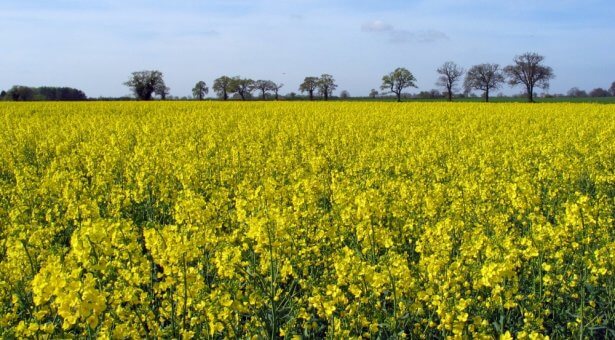Seed vigour for improved crop establishment (WP5)

Seedling vigour during germination enables the rapid development of healthy robust plants.
This is an important crop trait whereby fast germination and seedling growth reduce the probability of plants succumbing to pests and increases the probability of establishing a healthy crop.
The aims of this work package are:
- To multiply seed stocks of the Brassica oleracea and B. napus diversity sets
- Use our SeedGerm platform to score Brassica napus for germination time
- To develop an association transcriptomics pipeline for B. oleracea
- Identify genes associated with seedling vigour in B. oleracea and B. napus
We have undertaken germination studies in B. napus to identify differences in germination time between lines.
We have used our Seedgerm platform which uses Artificial Intelligence technology, to score seeds for germination time from time-lapse photography. We have used this data for a Genome Wide Association Study (GWAS) to identify areas of the genome associated with vigour.
We are interested in how the temperature across the whole plant life-cycle affects gene expression, germination and vigour and are assessing plants for these seedling traits using the small plant platform at Aberystwyth.
Phenotyping plants as part of the BRAVO project requires a large number of seeds. The Brassica oleracea diversity set contains a large number of self-incompatibility lines and as such seed production is difficult. As part of work package 5 the John Innes Centre and project partner Syngenta Seeds have multiplied these seed stocks. This has allowed phenotyping of the population for germination and the floral transition (WP2).
We have developed a genome wide association study (GWAS) pipeline for Brassica oleracea. This has provided an important tool to the Brassica community and adds value to the B. oleracea diversity set. The pipeline has been used to look at the floral transition (WP2), oil content and composition (WP3) as well as germination.
Work package 5 team
- Professor Steve Penfield (John Innes Centre) an expert in seed science and how the environment affects seed properties including germination and establishment vigour. Current research includes exploitation of seed coat properties to enhance seed quality in vegetable Brassicas and how environmental signals in the mother plant are passed to progeny seed
- PhD Student: Becca Doherty is working on the effect of temperature on seed development and yield in oilseed rape
- Project Partner: Professor Ian Bancroft (University of York) has extensive experience and achievement in Brassica genomics and Associative Transcriptomics to determine the control of plant traits that are of relevance to food security, industrial biotechnology or the environment. He has a strong track record in marker technology, the translation of knowledge from model to crop including the development of super high oleic oilseed rape
- Postdoctoral Researcher: Lenka Havlickova (University of York) an expert in molecular breeding of rapeseed and manager of a Brassica napus genomics platform
- Professor John Doonan (Aberystwyth University) has over 25 years of research experience in genetics and imaging tools to dissect the cellular basis of growth and development. Director of the National Plant Phenomics Centre, his group has combined novel and traditional imaging approaches, ranging from subcellular to dynamic analysis of whole plant development to extract plant and fruit/seed metrics to substantially enhance our ability to measure trait variation
- Postdoctoral Researcher: Dr Fiona Corke (Aberystwyth University) is the Smarthouse Manager responsible for planning, scheduling and collecting data from experiments within the Plant Phenomics Centre
